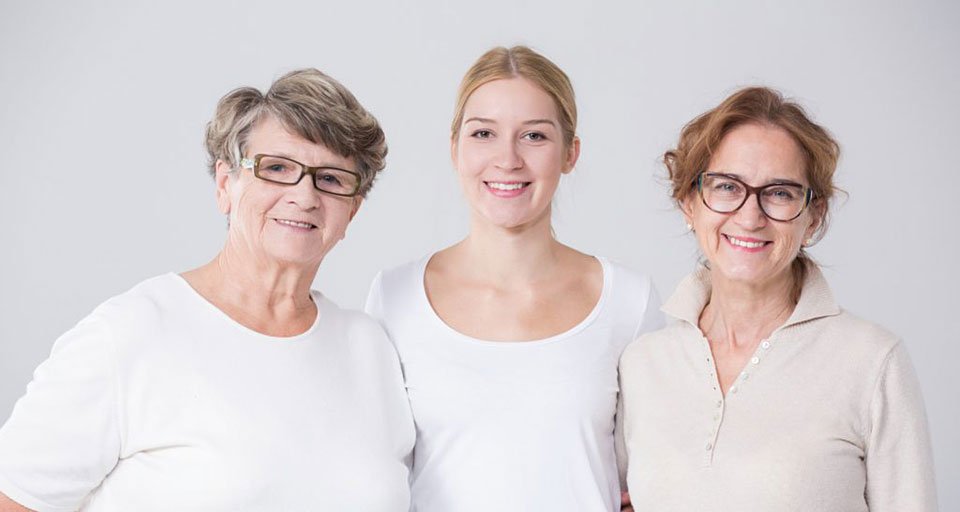Can you predict your risk of getting cancer?
Angelina Jolie made headlines in 2013 by revealing she had tested positive for the BRCA1 mutation, which put her at high risk for developing both breast and ovarian cancer. She chose to have both of her breasts, ovaries and fallopian tubes removed as a preventive measure.
As a result of her candor, today BRCA1 is one of the best-known cancer genes. But there are many others, and a new genetic test can now calculate your risk for breast and other cancers with a certainty of 99.92 percent.
“There are 25 different genes that we look at that are associated with eight different cancers to determine a person’s individual risk of developing cancer,” explained Kathryn Dalton DO, a surgeon at Cape Cod Hospital who specializes in breast cancer. “What we are looking for are harmful mutations, or changes in the genetic code, that have been linked to the development of certain cancers.”
Cape Cod Healthcare’s High Risk Cancer Genetic Assessment program began last October. Since then, 40 patients have been referred to Dalton and her associates for screening and monitoring.
Some of the patients have undergone preventive breast or ovary surgery. Most of the results have been negative. But many of the patients are still considered high risk, depending on their personal and family history, and need close follow-up.
“Not all people with a mutation develop cancer,” Dr. Dalton added. “But when one is identified, we can monitor and screen the patient more closely, identify cancer earlier and prevent cancer from happening in the future.”
Knowing Your Risk Can Help Guide Treatment
Maritess Seymour, 36, of Chatham, had a positive result for BRCA2. She had previously been diagnosed with breast cancer and undergone a bilateral mastectomy.
“Dr. Dalton recommended that I be screened for genetics,” Seymour said. “She helped me learn what might happen to me in the future. The biggest concern was my risk for developing ovarian cancer. I also wanted to know what it meant for my 8-year-old daughter’s risk.”
Seymour’s positive test raised her lifetime risk of developing ovarian cancer by 40 percent. She opted for the same course of treatment as Jolie: surgical removal of her ovaries and fallopian tubes.
For hereditary cancers, or ones that run in families, knowing your risk can help guide preventive treatment options and future care. It can also help inform your family members about their own potential risk.
Eight cancers have known mutations linked to increased risk: breast, colorectal, endometrial, gastric, ovarian, melanoma, pancreatic and prostate. Inherited mutations account for 5 percent to 10 percent of all cancers.
Dr. Dalton predicts other cancers will be added to the list in the future, as genetic research continues.
So, Who Should Be Screened?
Red flags for hereditary cancer, where there is a personal or family history, include:
- Cancer diagnosed at age 50 or younger
- Multiple cancers that have occurred independently in the same person
- Cancer that occurred in both sets of paired organs, such as both breasts or ovaries
- Several close blood relatives diagnosed with the same cancer (for example, grandmother, mother and daughter with breast cancer)
- Rare cancers, like breast cancer in a man
“We try to make the process as easy, and painless as possible,” Dr. Dalton said. “Our office will do an individualized risk assessment, and if there is ample concern, we will do all of the necessary paper work.”
Insurance may cover all or part of the cost of the test in many cases, especially where the risk criteria has been met, and Dr. Dalton said her office will write a letter of necessity to a patient’s insurance company.
Medicare currently will not cover the cost of testing in the absence of a cancer diagnosis, she said. CCHC financial counselors offer advice on ways to make the test affordable to anyone who needs it.
Genetic testing results become part of your medical record, but they remain private under the 2008 federal Genetic Information Nondiscrimination Act, known as GINA. And there are additional state protections, including in Massachusetts.
Seymour had detected her own cancer through a self-breast examination, but she didn’t immediately seek treatment. She sees genetic testing as one way for her to take a positive step at preventing an additional cancer from developing.
“Throughout the experience, I am sorry that I waited so long to go to the doctor,” she said. “I initially ignored the symptoms, which is something I now regret. But having a genetic test to understand my future risk is something positive that I could do for myself and my family.
“My advice to anyone with concerns is don’t wait until it’s too late. You have nothing to lose. It is a positive step you can take for your own health.”
